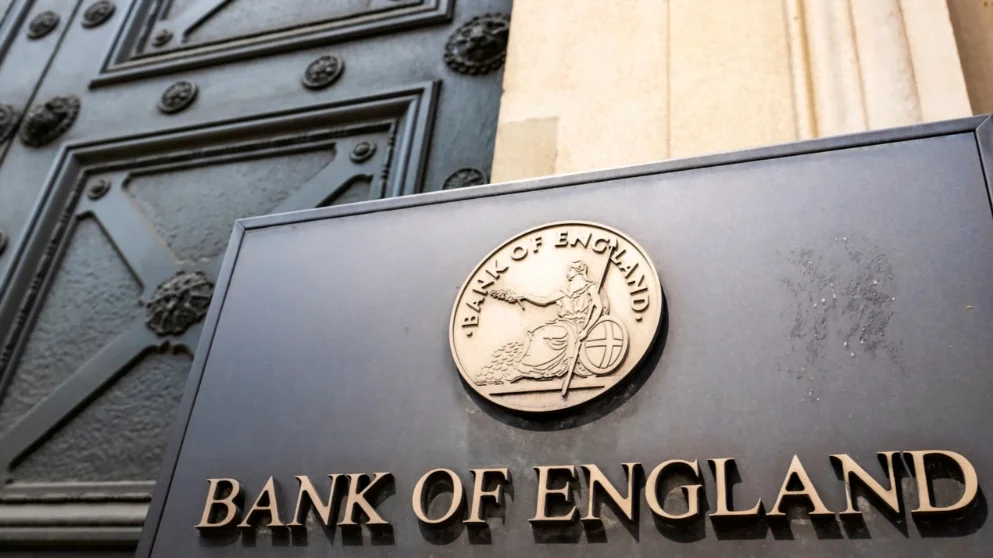Banks in the UK try to stop both businesses and people from investing in cryptocurrency. The problem should be fixed by the government.

In 2018, the Financial Conduct Authority (FCA) of the United Kingdom wrote to the heads of the country’s biggest high-street banks to stress the importance of doing due diligence when doing business with crypto companies. That seems to have led to a lot of high-risk ratings and bans on banking for crypto-related businesses and investors who want to do business in the U.K.
Banks are worried about scams, which is a good thing and makes sense, but the current situation makes things unclear. Crypto investors need to be able to move their money wherever they want, and crypto businesses need access to payment rails for things like paying their employees and suppliers.
A catch-22 that harms market competition
By not letting crypto businesses use “mainstream” banking, organizations are forced to use payment service providers (PSPs), which banks consider riskier because the gambling industry also uses them. This process is not very nuanced, as banks tend to block all transactions through PSPs.
When it comes to certain services, like handling payments, not accepting cryptocurrency hurts market competition as well. There’s a sense that banks don’t want to reduce the risks of crypto and make it easier to send money from crypto to banks because they think it will take away from their own market. If that’s true, the government needs to get involved to keep the market competitive.
Restricting individuals’ freedoms
Due to economic risk-reward calculations, banks keep dipping their toes into providing banking services to crypto-asset service providers, but these relationships are difficult. For example, Barclays used to help Coinbase make faster payments, but that stopped all of a sudden after three months. It’s likely that the amount of money was seen as not worth the amount of risk.
Banks are blocking crypto payments more and more, or their fraud prevention systems are kicking in and calling customers to make sure they understand the “risks” of the transaction. That makes it harder for regular people to do what they want with their money, and giving crypto-related transactions a higher risk weight isn’t right.
United Kingdom Banks are contradicting themselves
Even though it’s hard for crypto businesses to open bank accounts and investors have less freedom, almost every high street bank is very interested in crypto. But that’s only on one side of the bank. They are looking at how crypto will work as an investment for institutions, but this interest and knowledge don’t make it across the building to the people who do retail and corporate banking. You can’t have your cake and eat it too. The same problems will make it hard for institutions to use crypto as a way to invest. Banks have short-sightedness that keeps them from turning interested in one area into meaningful processes in other areas, which hurts everything.
BCB, Revolut, Clear Junction, and ClearBank all give people who use cryptocurrencies banking relationships or U.K. bank accounts. It’s possible because a small number of PSPs are able to work with crypto businesses or investors without getting in trouble with regulators, taking on more risk than other businesses, and having compliance teams that are similar to those of major retail banks. Banks don’t realize how big this chance is, even though a few organizations have already taken advantage of it. This makes the market less competitive.
Banks’ views on crypto are also unfairly hurting organizations that only do a small amount of business in crypto. This is where crypto is a small part of their business, which retail banks would probably risk-approve if it wasn’t for the fact that they are being forced to find new ways to use banking and payment services along with crypto natives. Because people don’t understand how different the cryptosphere is, accounting and legal firms with even a small amount of involvement in crypto are subject to the same blanket bans as wallets and exchanges.
Risk rating transparency will help, as will government intervention
We need the government to step in, and we need it now. Cryptocurrency is becoming more popular, and it’s not going anywhere. Even more, the economic secretary at the time, Member of Parliament John Glen, said in April that the United Kingdom wanted to “lead the way” in crypto and blockchain. The way things are now between U.K. banks, crypto companies, and crypto investors goes against this goal and is the biggest obstacle to doing well in this new economy.
In its 2018 letter to banks, the FCA stresses the importance of due diligence and says that banks have a duty to give their staff the knowledge and skills they need to be able to assess the risks of the crypto business. We haven’t seen that happen. On the payments side, there aren’t many signs that people are getting better at their jobs or trying to understand crypto so they can more accurately judge risk. Instead, they have chosen a blanket ban based on Standard Industrial Classification codes, like what is done in the gambling industry.
The FCA has stepped in and given crypto organizations licenses, but they have to show that they have Anti-Money Laundering and Know Your Customer processes in place to be able to operate and do business in the U.K., which means they have to have good banking relationships.
The crypto industry is here to stay, and like the government, it wants to grow. But banks that won’t work with crypto businesses or investors are the biggest obstacle to this growth. Without quick action to show how decisions are made and force support for banking relationships, U.K. crypto users will have to use limited banking services through PSPs or rethink being based in the U.K. Everyone will be upset by that.
